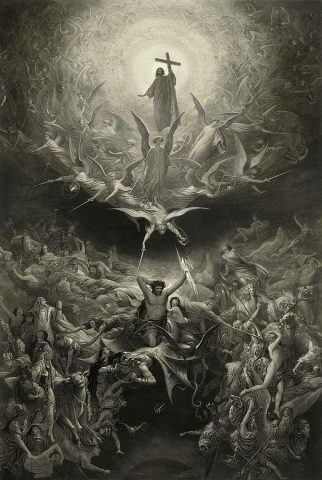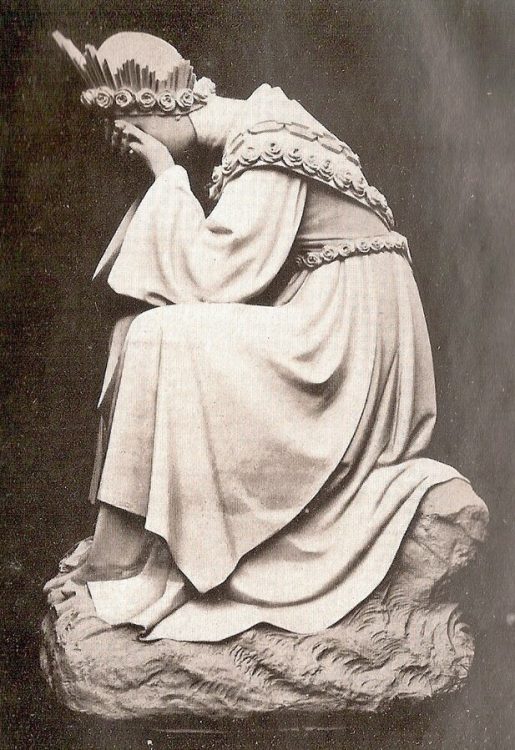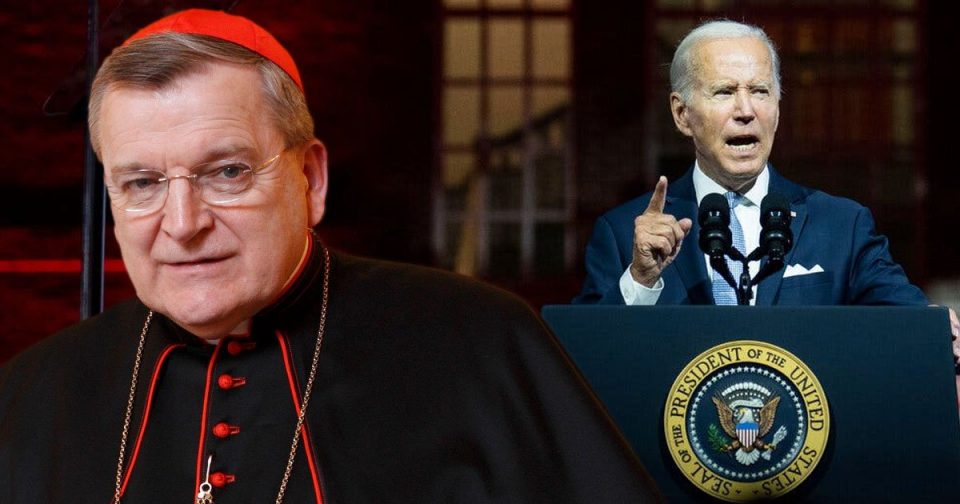To What Shall We Compare the Present Age? by Robert Royal

North Carolina Bishop Restricts Celebration of Latin Mass Every Sunday to One Diocesan Parish, by Brian Mershon
May 15, 2023
Thirsting for Souls, by Jerome German
May 15, 2023
*Image: The Triumph of Christ Over Paganism by Gustave Doré, late 19th century [British Museum, London]
By Robert Royal, The Catholic Thing, May 15, 2023
Robert Royal is editor-in-chief of The Catholic Thing and president of the Faith & Reason Institute in Washington, D.C. His most recent books are Columbus and the Crisis of the West and A Deeper Vision: The Catholic Intellectual Tradition in the Twentieth Century.
Please take note: There are multiple battles to be fought these days in the Church and the nation. And those of us called or situated to fight them must do so. But it’s even more important to know why – and what’s more deeply at stake. Today’s column, like many we publish on this site, tries to lay out some of that deeper perspective, which can only begin to take root when Catholics themselves come to a better knowledge of their tradition. Our fundraising in these weeks is premised on the importance of that knowledge. We’re moving along, but have to do a great deal more before we can bring this campaign to a successful finish. Please, if you appreciate the urgency of these battles and want to do something about them, click the button. Do your part. Make your contribution to The Catholic Thing.





